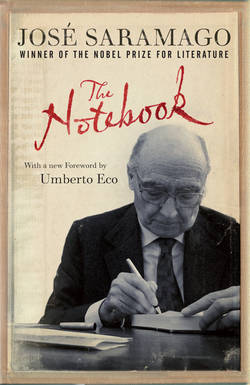Читать книгу The Notebook - José Saramago - Страница 17
На сайте Литреса книга снята с продажи.
September 23: Biographies
ОглавлениеI believe that all of the words we speak, all of the movements and gestures we make, whether completed or merely sketched, can each and every one of them be understood as stray pieces of an unintended autobiography, which, however involuntary, or perhaps precisely because it is involuntary, is no less sincere or truthful than the most detailed account of a life put into writing and onto paper. This conviction that over time everything we say and do, however devoid of significance and importance, is—cannot but be—a biographical expression once led me to suggest, with more seriousness than might have appeared at first sight, that every human being should leave a written account of his or her life, and that these thousands of millions of volumes, when there is no longer room for them on earth, should be taken to the moon. This would mean that the big, enormous, gigantic, vast, immense library of human existence would have to be split first into two parts, and then, as time went on, into three, then four, or even into nine, assuming that the eight other planets of the solar system had atmospheres benign enough to respect the fragility of paper. I would imagine that accounts of the many lives that, being simple and modest, would fit on a mere half-dozen pages, or even fewer, would be dispatched to Pluto, the most distant of the sun’s children, where researchers would doubtless want to travel only rarely.
I am sure that a number of problems and doubts would arise when the time came to establish and define the criteria for making up these so-called libraries. It would be beyond dispute, for example, that books like the diaries of Amiel, Kafka, and Virginia Woolf, Boswell’s life of Samuel Johnson, Cellini’s autobiography, Casanova’s memoirs, Rousseau’s confessions and many other works of comparable human and literary significance ought to remain on the planet on which they were written, in order to bear witness to the passage through this world of men and women who for good or bad reasons have not only lived but also left a mark, a presence, an influence, which, having survived to this day, will continue to affect generations to come. The problems will arise when the choice of what will stay and what will be sent into space begins to reflect the inevitably subjective value judgments, prejudices, fears, hatreds both ancient and new, impossible excuses, belated justifications, everything in life that constitutes terror, despair and agony—in other words, human nature. I think that after all it might be better to leave things as they are. Like most of the best ideas, mine is impracticable. So be it.
